Tyre Sidewall Failures Shared Right Here
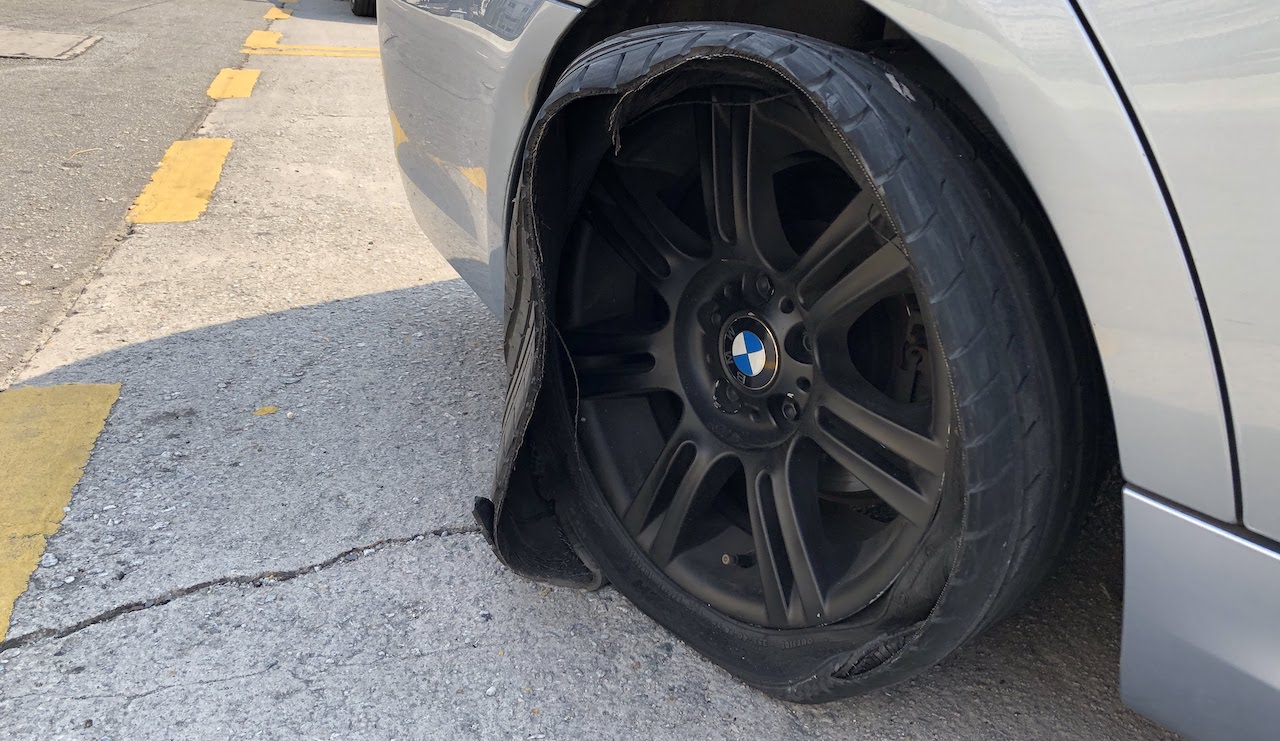
This is not a tyre brand issue or a tyre installation issue. This is an issue that the car owner can control.
This is tyre under-inflation which becomes an issue because of a driver negligence or road situation damage. All car tyres lose air over time and it is usually 1-2 psi per month depending on your road conditions.
About 1 psi also goes away with every 8-10°F drop in temperature. If the tyre has damage, air loss may be significantly larger, causing extreme lack of pressure sooner. Most tyres have about 30-35 psi pressure standard and if the tyre is under-inflated it reaches over 25% and a tyre sidewall blowout like this one may occur.
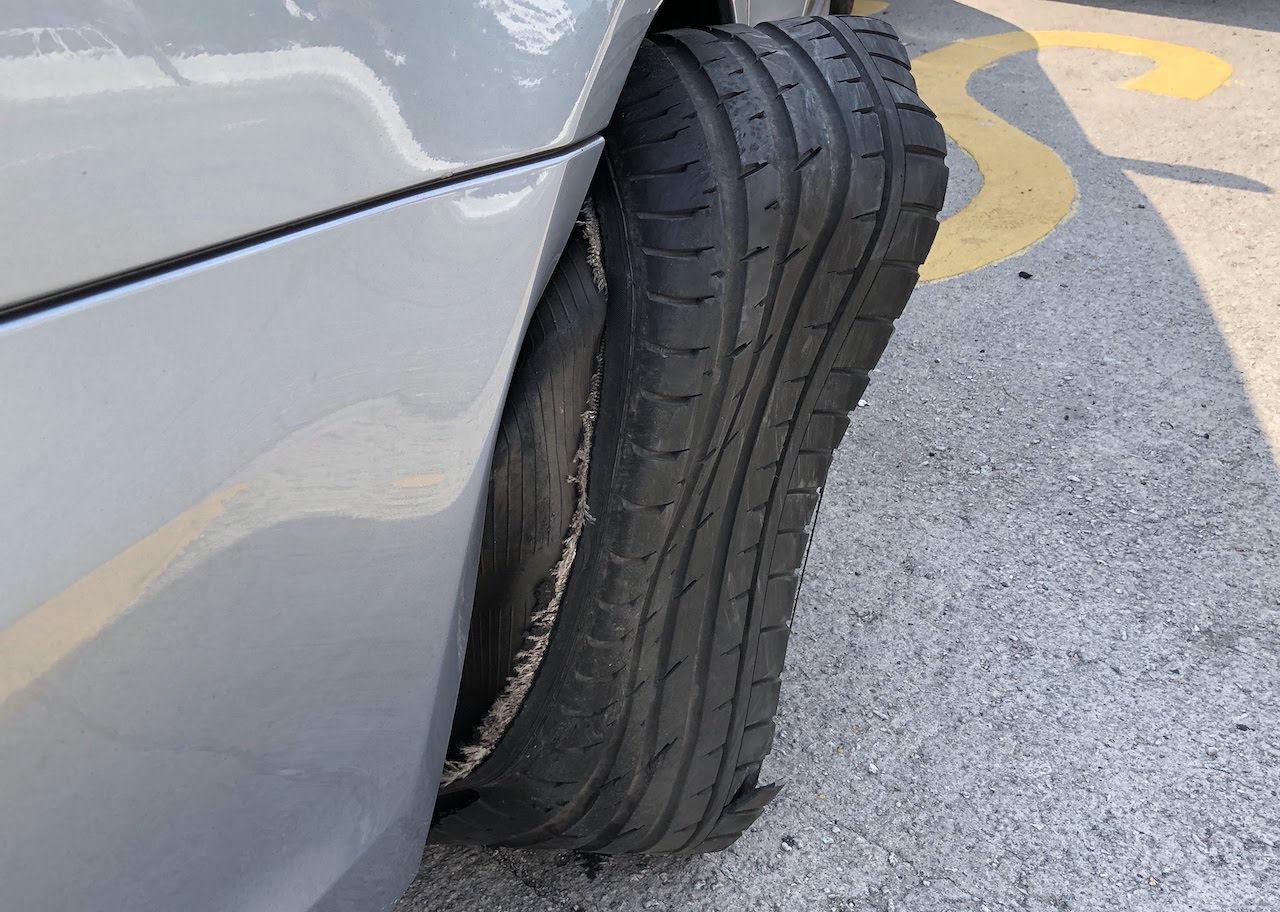
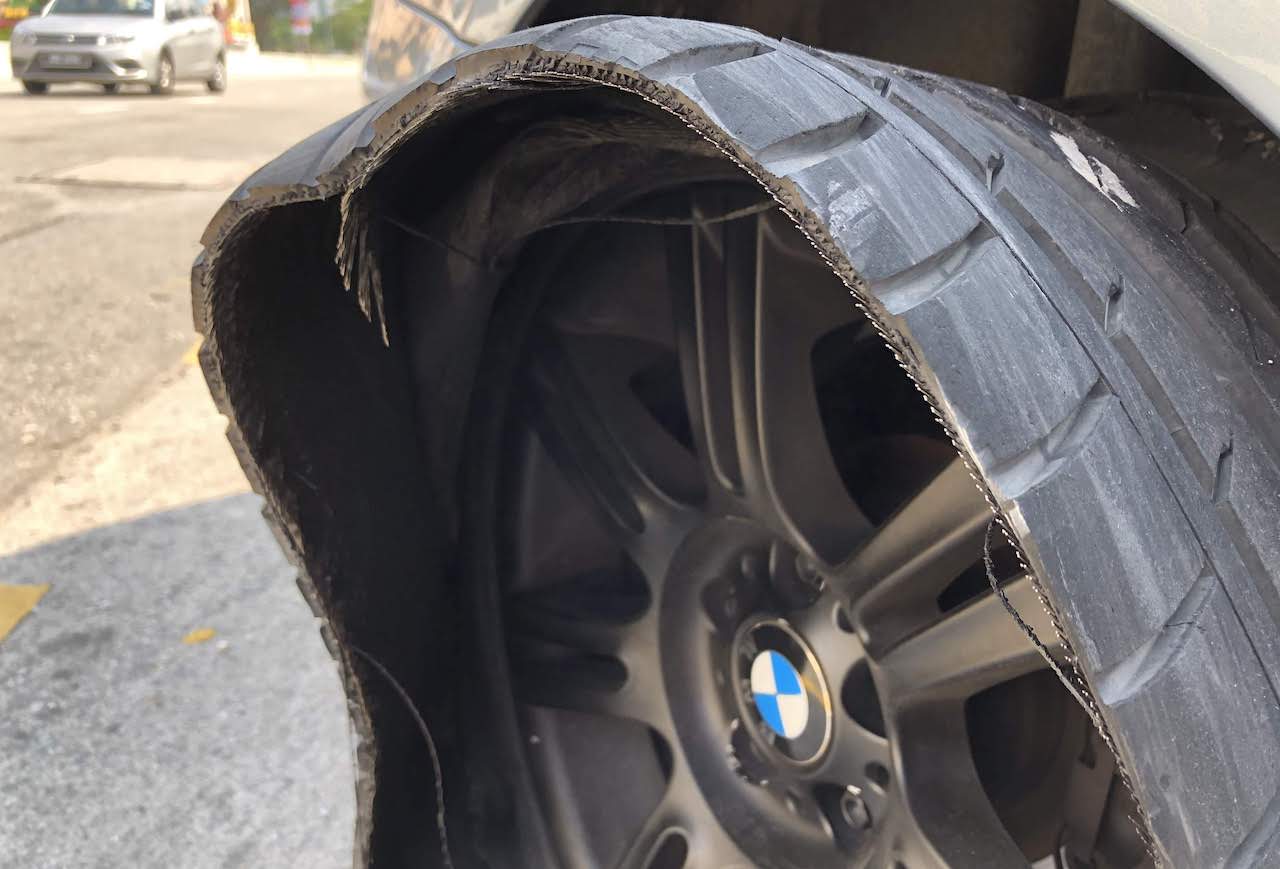
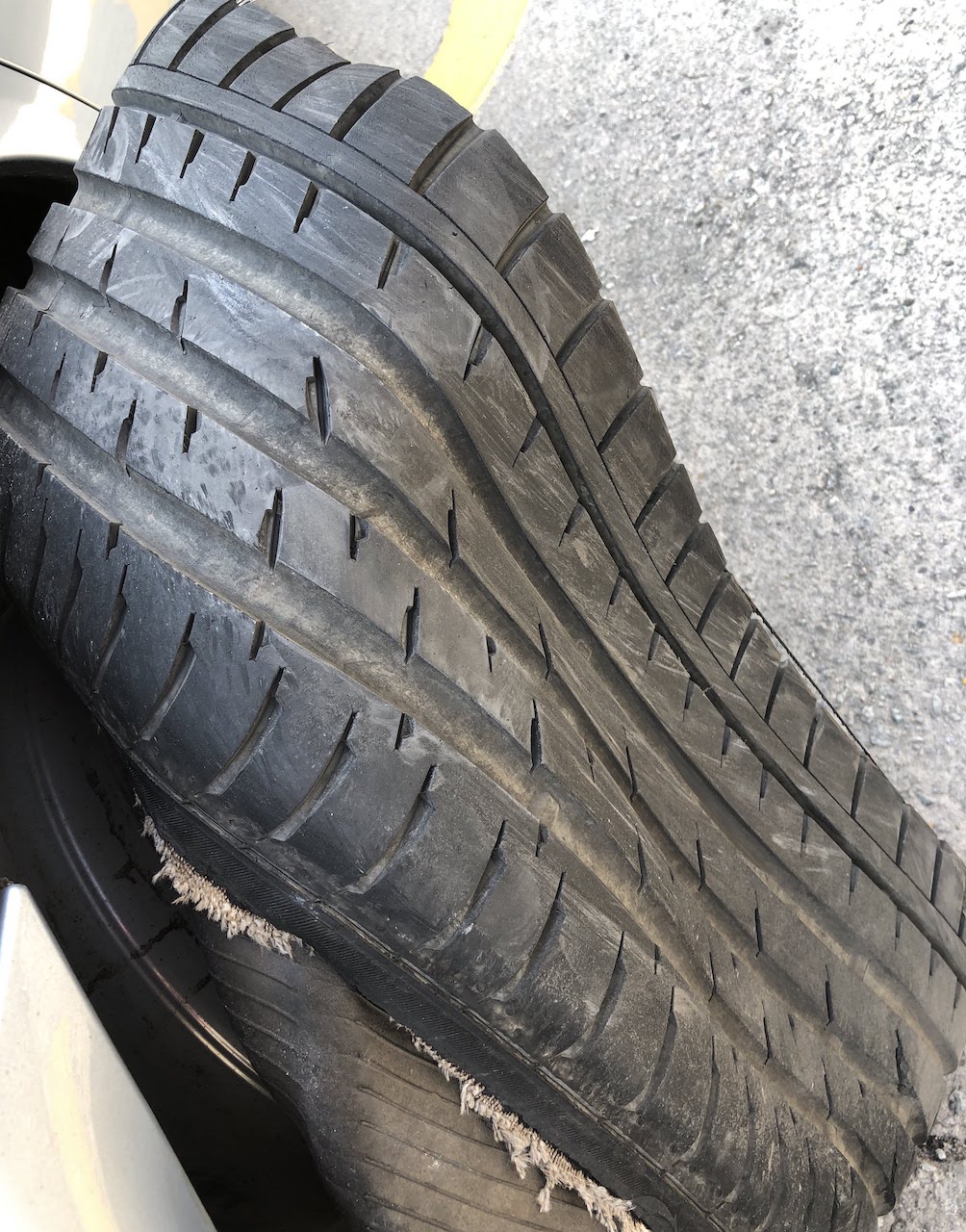
Under-inflated tyres’ sidewalls flex more, as there isn’t enough pressure to hold the load of the vehicle, passengers, etc. This causes heat buildup, in addition to the existing high temperature (like on our roads in the day) that the tyre usually can safely dissipate.
This is especially dangerous at highway speeds and if the temperature becomes too high for the tyre to handle, it may fail any moment.
If you have experienced such an issue, the inner liner may help you identify the cause. If there are burnt rubber chunks missing from the liner, the tyre sidewall blowout has most likely occurred due to under-inflation.
In this case, tire manufacturers and insurance companies may refuse to repay the damage or replace your damaged tyre for free (some car companies offer a tyre warranty).
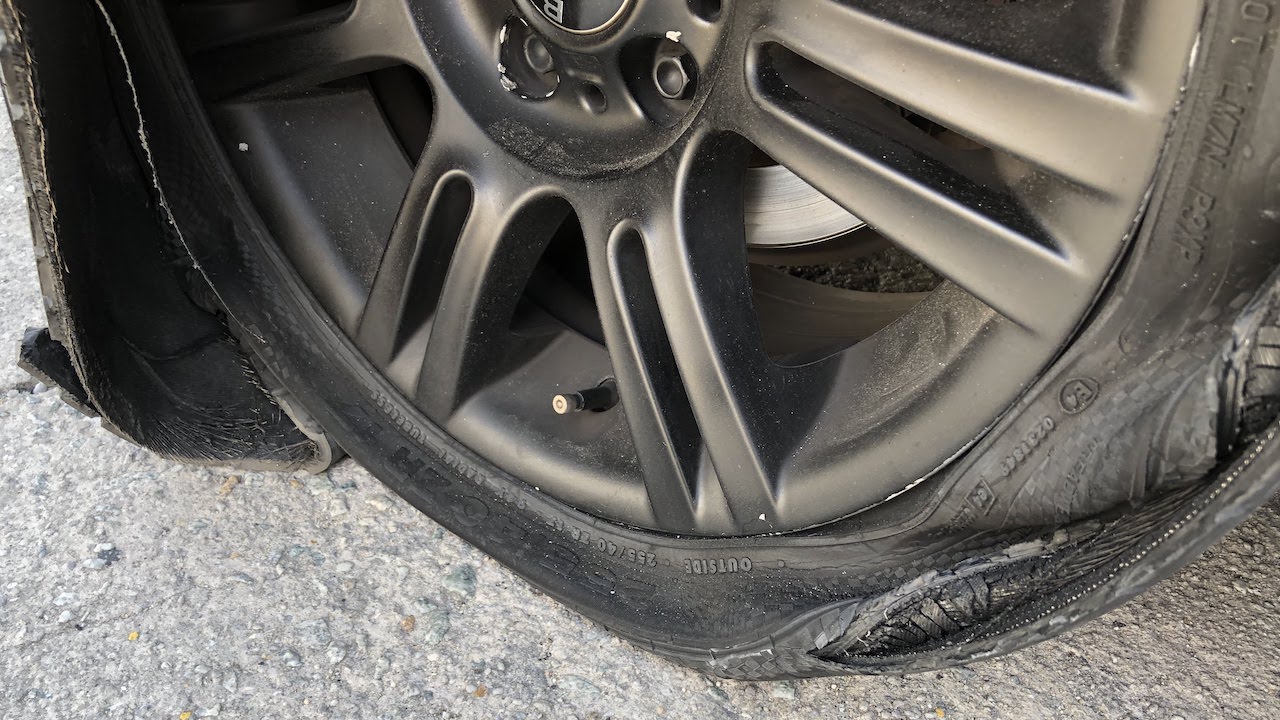
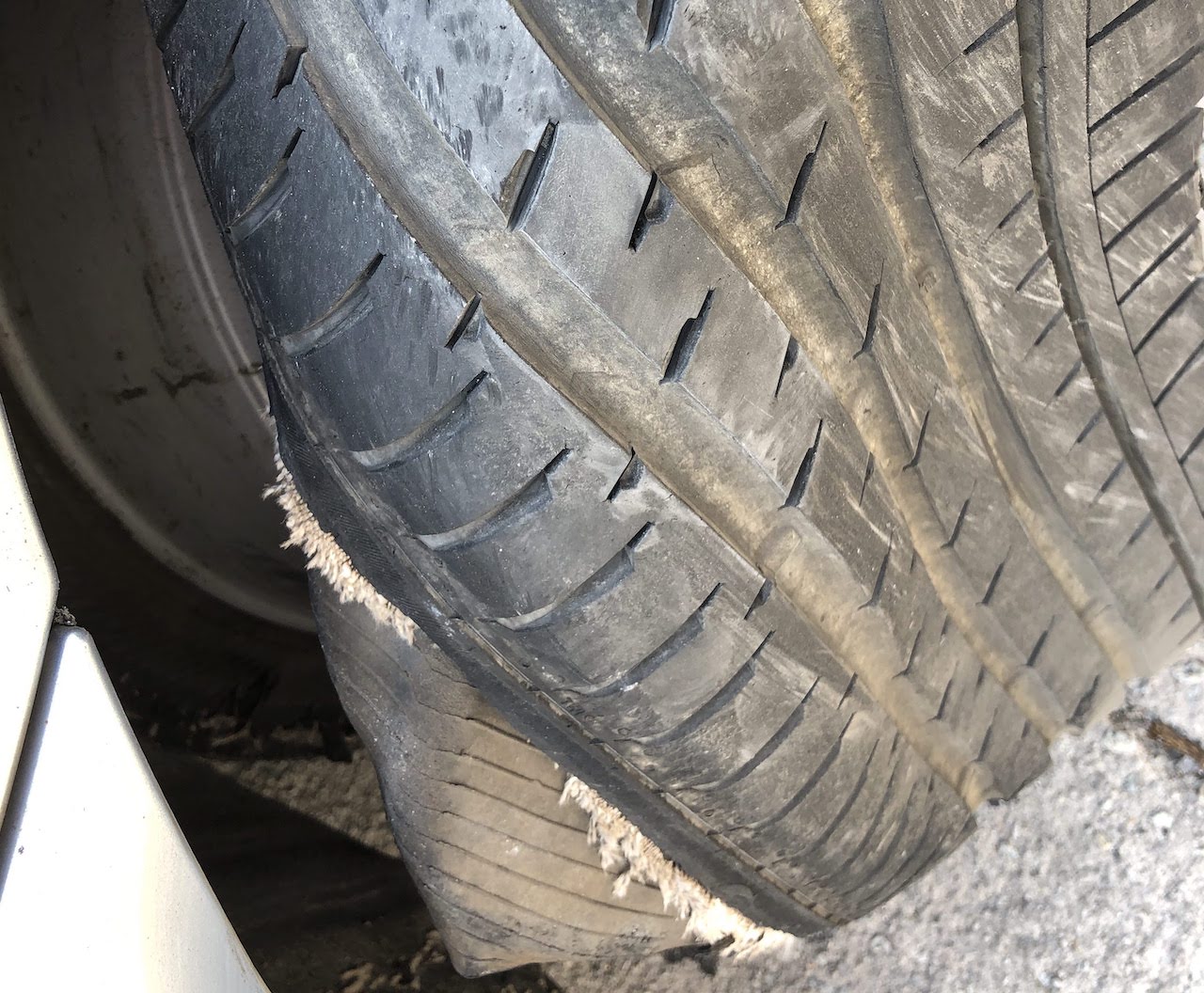
Tarmac Caused Damage
Tyre damage can develop due to road hazards or improper installation and maintenance. Usually when damaged, tyres lose air more rapidly, resulting in blowouts, tread or belt separation, etc.
Road hazards include potholes, debris, and curbs, which can leave a cut or a puncture in the tyre. The damage may be immediate, making the tyre run flat or explode. This is another reason for a tyre sidewall blowout.
NOTE: Low-profile tires are especially vulnerable to road damage as their sidewalls are shorter and can’t absorb as much impact.




